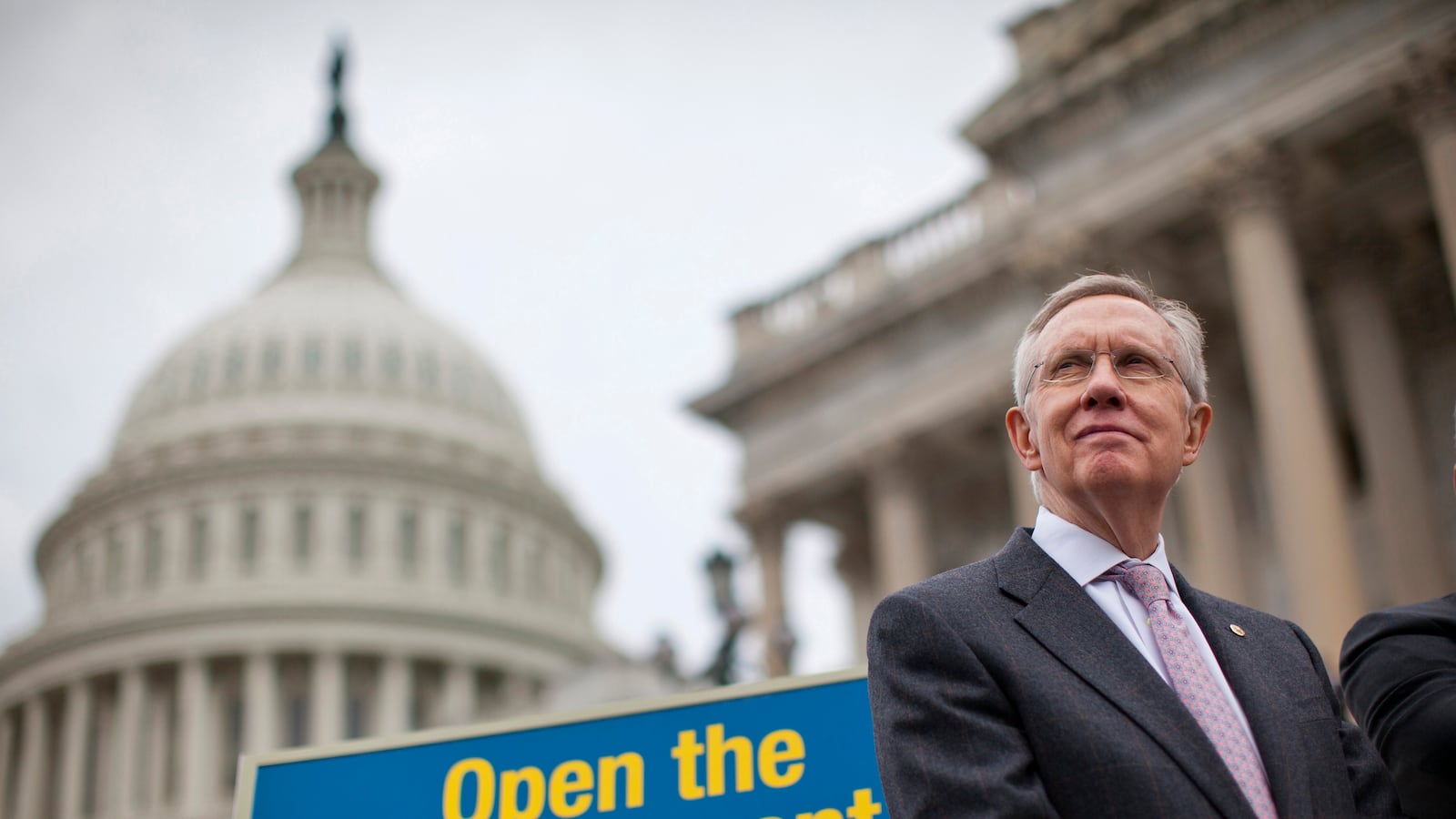Like the atomic bomb in a James Bond movie, the debt ceiling crisis seems to have been averted with only minutes remaining on the countdown clock. A lot could still go wrong. But sighs of relief are being heard from Congress and from Wall Street. The S&P 500 has gained more than 2 percent over the past week.

We can all welcome the last-minute decision by Republicans in Congress to halt a confrontation that threatened to blow up the world financial system. It’s important to understand, however, that even if all goes as agreed—even if the debt ceiling is raised and the government shutdown ended—this crisis has nowhere near ended.
The crisis will be a long time ending because it was a long time starting. The crisis did not start 15 days ago. It did not start with Sen. Ted Cruz. And it won’t be ended by a back-room deal.
Before the shutdown was the sequester. Before that was the fiscal cliff. Before that was the near default of 2011. Before that was the battle over food stamps and extended unemployment insurance. Before that, the drama of Obamacare and the summer of the town halls. And before that, of course, were the conflicts of the Bush years, which seemed unprecedented enough at the time.
The American system has historically been governed by unwritten norms every bit as important as the formal rules of the House and Senate. Over the past generation—and especially since 2009—those norms have faded away, replaced by a new and more ruthless style of politics.
The political scientists Norm Ornstein and Thomas Mann draw attention to one indicator of the new ruthlessness in their important book, It’s Even Worse Than It Looks. The minority party in the Senate has the power to delay approval of a president’s appointees. Historically, minority parties have hesitated to use that power. Sixteen months into the George W. Bush administration, for example, on Memorial Day 2002, only 13 executive-branch nominations awaited confirmation by the Senate. At the corresponding moment in the Obama administration, Memorial Day 2010, 108 nominees awaited action by the Senate.
Why are American politicians playing so rough? We have moved into an era of scarcity. Once it seemed possible to have the spending Democrats wanted, financed at the tax rates the Republicans wanted, while paying for sufficient national security and running bearable deficits. That sense of expansiveness is gone. The trade-offs between Obamacare and Medicare, between spending and taxes, suddenly seem acute, imminent, and zero sum. These disputes are not merely economic. As the United States becomes more ethnically diverse, debates over fiscal priorities inescapably become conflicts between ethnicities and cultures. The Medicare population is more than 80 percent white. On the eve of the 2008 recession, the uninsured were 27 percent foreign born. Similar group dynamics are at work in debates over fiscal and monetary stimulus: inflation is a lot more frightening to a retiree who lost a great part of his or her savings in a stock-market crash than to a young family struggling with student loans and a mortgage. And again, America’s retirees are much more likely to be white and native-born than are America’s struggling young families. They are visible again in debates over taxes, where people who earn relatively more feel suddenly intensely vulnerable to the demands and resentment of those who earn less. Those were the feelings Mitt Romney channeled in his notorious crack about the 47 percent.
You don’t have to endorse any of these fears to recognize how they constrain even the best politicians. And not all politicians are best. There will always be people in political life who regard one man’s fear as another man’s opportunity. Such people have enjoyed a very prosperous half-decade.
The crisis in American politics won’t end until the larger crisis in American life finds some resolution. When the economy grows faster and Americans feel more optimism about their future; when Medicare costs are put on a more sustainable footing so retirees have less to worry about; when the pace of demographic change slows so that economic disagreement does not also become ethnic conflict; when the tax burden is more broadly shared so that high earners don’t feel that all society’s costs fall to them—then things will quiet down. None of those things look likely to happen soon, so brace yourself for more crises ahead.






